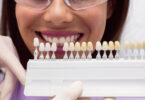A child’s self-esteem is greatly affected by their teeth and jaws. When a child is insecure about their smile, it can make it difficult to form relationships with other children and peers. Regular dental check-ups can help a child have a healthy, confident smile. Dental care is equally important to overall health, so your child needs regular check-ups to stay in good health.
One of the most fun and essential things a new parent can do is care for your child’s teeth. This task should be done daily and needs special attention. Dental problems can be caused by a child’s poor dental hygiene or diet and irregular check-ups. Fortunately, there are several dental care tips for children that will help you do this.
1. Prolonged Unhealthy Eating Habits
Your child’s oral health is influenced by their diet. You must ensure that they eat a balanced diet to prevent cavities and gum disease. Avoid sugary and processed snacks, which are known to cause tooth decay. For better oral health for kids, choose foods low in sugar and contain good nutrients. Consider including fruits, vegetables, and whole grains in your child’s diet. Limit the consumption of soda & packaged fruit juices, as their content can erode tooth enamel.
Healthy eating habits for your child’s oral health begin at home. A healthy diet should also include calcium-rich foods. Calcium helps build strong teeth. Milk, yogurt, and broccoli are excellent sources of calcium. And if your child doesn’t like to eat dairy, you can introduce them to some calcium-rich foods. Regular chewing gum will also increase the flow of saliva, which is good for the oral health of kids.
2. Lack of Fluoride Can Lead to Tooth Decay
Fluoride is a mineral that helps prevent tooth decay by strengthening tooth enamel. Tooth decay occurs when bacteria in plaque combine with sugars to create acid and attack the tooth’s enamel. Fluoride prevents this process by increasing the tooth’s resistance to acid and preventing the erosion of tooth enamel. It makes teeth stronger and more resistant to cavities. This means fewer dental visits and a lifetime of healthy, natural teeth.
Fluoride is a naturally occurring mineral in the earth’s crust. You can get it in toothpaste, mouthwash, and supplements. Fluoride helps reverse the damage done to teeth by decay bacteria. Reach out to your dentist or prosthodontist for more essential dental care tips for children. You can also get fluoride from wells, city water, and various food sources.
3. Thumb-Sucking
Thumb-sucking can lead to several bad dental habits, including tooth decay, braces, and an overbite. While it may not seem like a big deal, thumb-sucking can affect the growth of a child’s mouth and teeth. The front teeth are often the first to come in, and the long-term thumb-sucking can alter the shape of the roof of the mouth, which can lead to pain and discomfort. It’s advisable to visit a nearby dental implants center for a better approach to this issue.
Parents can prevent thumb-sucking by distracting their children from the activity and keeping their hands busy. Parents can also give their children a hug or a pillow to distract them from the habit. However, children can revert to their old habits if nagged or criticized. A positive reinforcement approach is necessary for this reason.

4. Irregular Flossing
Flossing helps prevent gum diseases. However, if children are not taught to do this, they may bleed when they do it. Nevertheless, the more they floss, the less likely they will experience bleeding gums. In time, the bleeds will stop, and the gums will become healthier. If your child complains that they hate flossing, try to make it fun for them or book your appointment at Dental Implants Center Longmont for professional guidance and more information on dental care tips for children.
While most dental professionals recommend that children begin flossing after they have two teeth that touch, the actual age of this should vary, many children don’t start flossing until the age of eight or ten. In such cases, consult a reliable dentist or prosthodontist to learn more about dental care for kids.
5. Ice Chewing
Many parents often find it difficult to stop their children from eating raw ice. The ice chewing habit is a symptom of pica eating disorder, a compulsive behavior to eat objects that don’t have any nutritional value. The health consequences of this habit may include pain, gum disease, and a deficiency of vitamins and minerals. It is essential to consult a healthcare professional at a dental implants center if you notice a pattern of ice chewing.
Ice chewing can cause cavities in the teeth and chip or crack the enamel. It can also lead to increased sensitivity to temperature, which is problematic. Therefore, it’s essential to consult a dentist to learn more about the importance of oral health for kids, which may help prevent any further dental problems from developing.
6. Stress & Anxiety
If you notice your child experiencing stress or anxiety, you must consult an expert as it may contribute to the development of many dental problems. In addition to causing teeth to become chipped or rotten, stress can cause oral sores. The cause of stress can be anything from being a subject of a bully at school or fear of examination or the outside world. It’s essential to identify the root cause and solve it before it worsens.
The dental damage caused due to stress is often the result of the body’s weak immune system, affecting eating and speaking. It is found that stress and anxiety affect oral health badly, and if not treated well in time, it can lead to more severe dental conditions. It’s highly advisable to visit your nearby dentist or Prosthodontist in Longmont for the best dental treatment.
7. Regular Dental Check-Ups
Taking your kids to regular dental check-ups will allow you to monitor their oral health and teach them about good oral hygiene. Your child’s mouth is the main entry point for bacteria and other germs in the environment, so it’s essential to focus on dental care for kids to prevent cavities and other oral problems. During regular dental check-ups, your child will be examined for swelling, head and neck development, and gum disease.
While baby teeth are only temporary, they are just as important as permanent ones. Getting regular dental check-ups for your child will help you detect any problems early and prevent them from causing more severe issues. The dentist will watch your child’s development and see if anything goes wrong. In addition, if a child is missing any baby teeth, they may require orthodontic treatment.
Key Takeaways
Research shows that children with healthy teeth are happier and do better in school. They also have better self-esteem, which can positively impact a child’s self-esteem. A visit to the dentist or prosthodontist in Longmont is essential for young children because it can prevent serious issues, such as tooth decay and toothache.
In addition to helping children with their oral health, regular dental check-ups also help them learn proper hygiene habits. Children should have regular dental check-ups as soon as they show any signs of tooth decay. Visiting the dentist early is vital because cavities can lead to pain and difficulty concentrating.
AUTHOR BIO:
Steve Johnson works as the Lead Marketing Manager for Rocky Mountain Dental Specialists, a periodontal disease treatment center in Longmont, CO. He also enjoys fly-fishing, skiing, golf, and helping people out in his free time.








